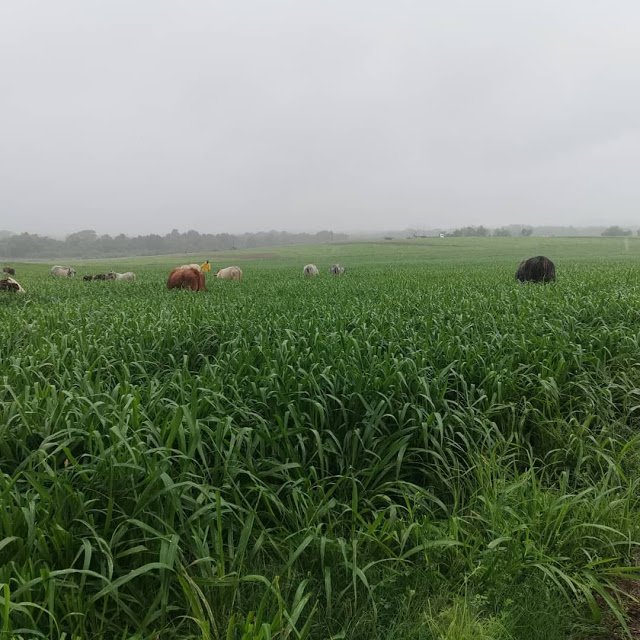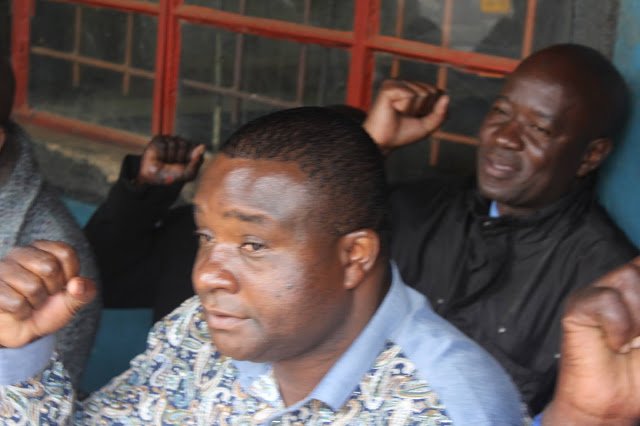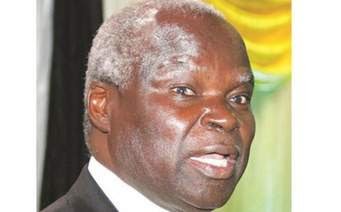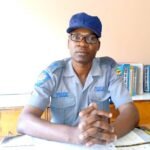Moses
Ziyambi
Ziyambi
The Minister of State
in Vice President Kembo Mohadi’s Office, Davis Marapira is farming a special
grass which is used to make cattle feed as part of his own efforts to develop
the sector in Masvingo province.
in Vice President Kembo Mohadi’s Office, Davis Marapira is farming a special
grass which is used to make cattle feed as part of his own efforts to develop
the sector in Masvingo province.
Marapira is
implementing the project on part of his 500-hectare farm which is located some
few kilometres west of Masvingo city off Bulawayo highway.
implementing the project on part of his 500-hectare farm which is located some
few kilometres west of Masvingo city off Bulawayo highway.
The grass, which is
known by its Portuguese name Brazseed Panicum Mombaza, is rich in nutrients
that enable cattle to survive the worst of the lean seasons.
known by its Portuguese name Brazseed Panicum Mombaza, is rich in nutrients
that enable cattle to survive the worst of the lean seasons.
Marapira, who is one of
the best performing farmers in the whole province if not the whole country in
terms of yields per hectare and effective land use, imports the seed of the
grass variety from Brazil.
the best performing farmers in the whole province if not the whole country in
terms of yields per hectare and effective land use, imports the seed of the
grass variety from Brazil.
In an interview with
TellZim News, Marapira said the grass project was a response to the urgent need
to grow alternative stock feed in face of increasingly unreliable rainfall
patterns.
TellZim News, Marapira said the grass project was a response to the urgent need
to grow alternative stock feed in face of increasingly unreliable rainfall
patterns.
“If you are a serious
cattle farmer, you do not want to keep doing things the old ways because
everything is changing. You want to explore new ways of keeping your livestock
alive and healthy even in the worst of droughts. This is why we at this farm
have decided to start growing this grass variety.
cattle farmer, you do not want to keep doing things the old ways because
everything is changing. You want to explore new ways of keeping your livestock
alive and healthy even in the worst of droughts. This is why we at this farm
have decided to start growing this grass variety.
“It’s not any easy
project because to import the seed is expensive, the fertilisers are expensive and
there is also need for manpower to remove unwanted weeds and to do all the other
nurturing work. We have begun with 30ha which can produce enough yields to feed
300 cattle for one year,” said Marapira.
project because to import the seed is expensive, the fertilisers are expensive and
there is also need for manpower to remove unwanted weeds and to do all the other
nurturing work. We have begun with 30ha which can produce enough yields to feed
300 cattle for one year,” said Marapira.
One hectare of
adequately-nurtured Brazseed Panicum Mombaza can produce enough hay to feed 10
cattle for twelve months at a yield of 100kg/ha.
adequately-nurtured Brazseed Panicum Mombaza can produce enough hay to feed 10
cattle for twelve months at a yield of 100kg/ha.
The grass needs to be
fed some compounds of phosphate, potassium, iron, zinc, nitrogen and urea
fertilisers for it to reach its fullest potential.
fed some compounds of phosphate, potassium, iron, zinc, nitrogen and urea
fertilisers for it to reach its fullest potential.
“Part of the harvest
will go to the local market and the rest will be exported to such countries as
Israel where demand is high. We need to earn as much foreign currency as we can
so that the project can grow and remain sustainable,” said Marapira.
will go to the local market and the rest will be exported to such countries as
Israel where demand is high. We need to earn as much foreign currency as we can
so that the project can grow and remain sustainable,” said Marapira.
The farm also produces
several tonnes of maize, sugar bean seed and wheat, and it also hosts several
hundreds of cattle, sheep and goats.
several tonnes of maize, sugar bean seed and wheat, and it also hosts several
hundreds of cattle, sheep and goats.
“By the standards we
are building, this farm is becoming smaller and smaller. Our activities are
growing because we are serious farmers who want to feed the country. There is
no need for people to keep land they cannot utilise,” said Marapira.
are building, this farm is becoming smaller and smaller. Our activities are
growing because we are serious farmers who want to feed the country. There is
no need for people to keep land they cannot utilise,” said Marapira.
He said he was inspired
by President Emmerson Mnangagwa’s successful farming business at his Sherwood
Farm in Kwekwe.
by President Emmerson Mnangagwa’s successful farming business at his Sherwood
Farm in Kwekwe.







